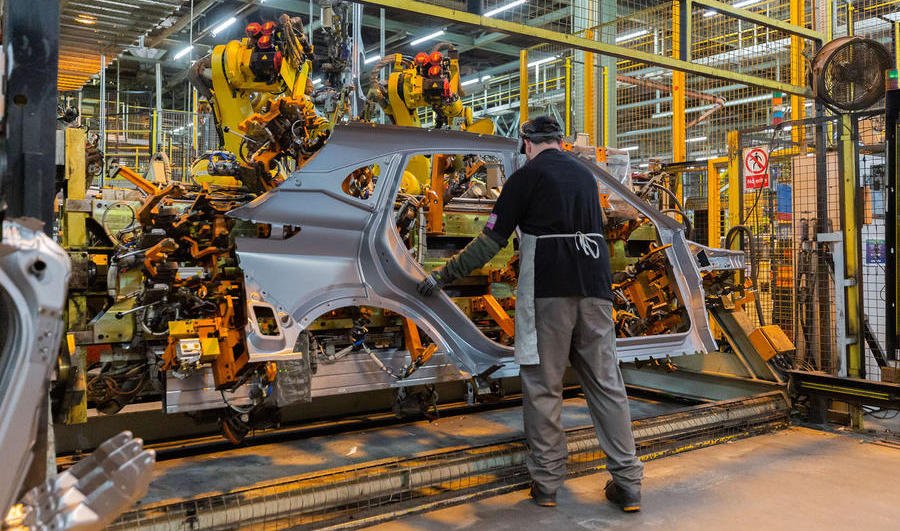What the impact of Russia's war in Ukraine means for car companies

The halt in sales is partly because the sanctions imposed by the European Union and to a lesser extent the UK have made it very difficult to ship cars to Russia and for buyers to pay for them if they do get there. Aston Martin, for example, said the reason for its pause was the “operational impact” of the sanctions.
Several manufacturers that build vehicles in Russia have announced they are pausing production, with Volkswagen Group becoming the biggest yet so far to do so. It will halt production at its Kaluga facility as well as at contract manufacturing operations run by Gaz in Nizhny Novgorod, citing “the backdrop of the Russian attack”. It said that it was giving employees “short-time working benefits” while production was stopped.
Others pausing production include BMW, Ford (which has a joint venture with Sollers making vans) and Mercedes-Benz.
The European maker with the biggest operations in Russia is Group Renault, which owns Avtovaz, the parent company of Lada. Lada remains Russia’s biggest car brand with a 22% market share in 2021, according to data from the Association of European Businesses (AEB), and Avtovaz brought in €2.8 billion in revenue for Group Renault last year, 6.2% of its total.
Since the invasion began, Avtovaz has paused and restarted production of Ladas and Renaults at its vast Togliatti plant in Russia but blamed a shortage of chips rather than the war or sanctions.
Russia was once hailed as Europe’s most promising car market, with sales expected to overtake Germany for the region's number-one spot. However, after hitting a record 2.8 million sales in 2008, the market has settled well below that.
Last year, Russia bought 1.67 million cars, according to AEB figures, putting it just ahead of France at 1.66m and the UK at 1.65m.
The biggest demand is for budget saloons and hatchbacks, but there’s also a strong market in premium vehicles. This helped push cars to become the UK’s biggest export to Russia last year, worth nearly £400m, according to figures from the Government’s Office for National Statistics (ONS). JLR sold 6909 cars in Russia last year, putting it just ahead of Porsche.
The effect of the sanctions is likely to promote Chinese cars within Russia, which have steadily gained ground from sales of around 25,000 in 2011 to more than 100,000 last year. In January, two Chinese brands – Chery and Great Wall Motors-owned Haval – made the top 10 for the first time ever.
Ukraine’s biggest contribution to the European car market isn’t through sales, which last year roughly matched those of Ireland, at 103,245, according to data aggregator Bestsellingcarsblog.com.
Instead its importance to the industry is as a supplier of wiring harnesses to car makers throughout Europe, and the disruption caused by the war is being felt across the region, to the point that a number of factories have had to pause production.
"It's difficult to provide a reliable outlook, due to the highly dynamic situation, but one thing is clear: there will be further disruption of vehicle production in Germany," stated German car association the VDA on Wednesday.
Porsche paused production of the Macan and Panamera on Wednesday and won’t restart it until the end of next week.
BMW said it too had paused assembly at unspecified European plants, affecting both BMW and Mini production.
"The conflict in Ukraine is having a far-reaching impact on production in the supplier industry there,” a BMW spokesman told the Frankfurter Allgemeine Zeitung newspaper in Germany.
Meanwhile, Volkswagen has said that it will have to stop its Wolfsburg plant in the week beginning 14 March, while Mercedes is also having to cut production levels at its European plants.
Ukraine has built up a competence in wiring harnesses in recent years, with suppliers such as Leoni and Yazaki setting up plants there.
Other key supplies for car makers coming from Ukraine include neon gas, needed to make chips, as well as the precious metal palladium, used in catalytic convertors.
The country is also a key source of nickel ore, which is refined into cathode materials to make batteries for electric vehicles.
A more immediate effect on all motorists is the rising price of petrol, which has climbed to new highs as oil prices have surged in response to Russia’s attack.
So far, neither the UK nor the EU have moved to stop buying oil or road fuels from Russia, but pressure is growing to halt this source of foreign earnings and include it in the sanctions designed to apply painful economic pressure on Russian president Vladimir Putin.
Last year, refined oil including road fuels was the UK's biggest import from Russia with a value of £2.6bn, while we spent another £1bn on crude oil from the country, according to the ONS. That’s more than we import from Saudi Arabia.
Already pressure is building to stop that cashflow to Putin’s regime.
Green activist group Transport and Environment this week called for fuel stations to disclose what share of petrol and diesel they sell originates from Russia, saying that “drivers deserve to know whether their petrol station is financing Putin’s war on Ukraine”.
